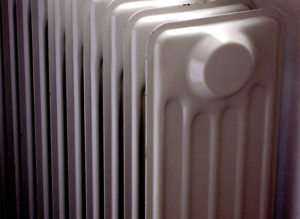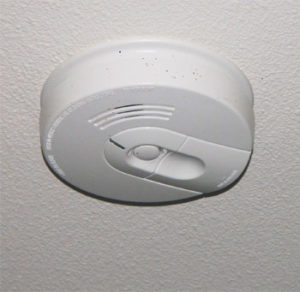 Home heating equipment, particularly space heaters are the one of the leading causes of home fires. Almost 50% of home heating equipment fires occur during December, January and February. Heaters cause over 60,000 home fires per year resulting in 670 deaths, 1,500 injuries and over $900 million dollars in property damage. Space heaters specifically account for one third of all home heating fires and nearly three fourths of deaths. Some people use space heaters as their primary heating source. However, space heaters are not meant to be used that way. In addition, other attempts to heat homes with generators or stoves can cause dangerous problems. They emit carbon monoxide or CO, which is a colorless, odorless and tasteless gas. CO is toxic and the leading cause of accidental poisoning deaths. Following these few tips can help ensure you are both warm and safe during the wintertime.
Home heating equipment, particularly space heaters are the one of the leading causes of home fires. Almost 50% of home heating equipment fires occur during December, January and February. Heaters cause over 60,000 home fires per year resulting in 670 deaths, 1,500 injuries and over $900 million dollars in property damage. Space heaters specifically account for one third of all home heating fires and nearly three fourths of deaths. Some people use space heaters as their primary heating source. However, space heaters are not meant to be used that way. In addition, other attempts to heat homes with generators or stoves can cause dangerous problems. They emit carbon monoxide or CO, which is a colorless, odorless and tasteless gas. CO is toxic and the leading cause of accidental poisoning deaths. Following these few tips can help ensure you are both warm and safe during the wintertime.
- Keep anything that can burn at least three feet away from heating equipment, such as the furnace, fireplace, wood stove, or portable heater.
- Only use heating equipment that has the label of a recognized testing laboratory.
- Never use your oven for heating.
- Have a qualified professional install stationary space heating equipment, water heaters or central heating equipment according to the local codes and manufacturer’s instructions.
- Maintain heating equipment and chimneys by having them cleaned and inspected annually by a qualified professional.
- Turn portable heaters off when leaving the room or going to bed.
 For fuel burning space heaters, always use the proper fuel as specified by the manufacturer.
For fuel burning space heaters, always use the proper fuel as specified by the manufacturer.- Make sure the fireplace has a sturdy screen to prevent sparks from flying into the room and burn only dry, seasoned wood. Allow ashes to cool before disposing in a metal container, which is kept a safe distance from the home.
- For wood burning stoves, install chimney connectors and chimneys following manufacturer’s instructions or have a professional to the installation.
- Make sure all fuel-burning equipment is vented to the outside to avoid carbon monoxide poisoning.
- Install and maintain carbon monoxide (CO) alarms to avoid the risk of CO poisoning.
- If you smell gas in your gas heater, do not attempt to light the appliance. Turn off all the controls and open doors and windows. Call a gas service person.
- Test smoke alarms at least monthly.


